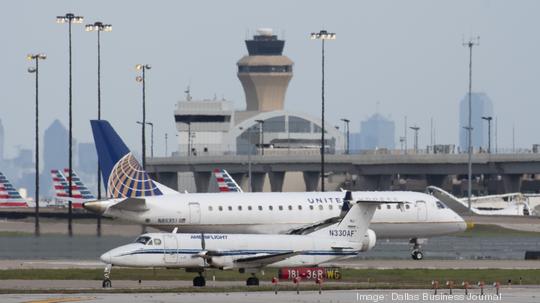
Not long after its initial launch, the pandemic grounded most of the travel tech startup FlyLine’s business. Now, nearly a year later, the company is reemerging with new plans to take flight.
No longer focused on the industry's consumer side, the Dallas-based company took a pandemic pause to double-down on its technology and is now building an API platform that looks to help travel management companies find their clients the best airfare across dozens of carriers.
“It’s a huge push in the industry for airlines to own their customer and have their own APIs, and what we do is we normalize that. We take all these APIs and put them in one,” Zachary Burau, co-founder and CTO at FlyLine, told NTX Inno. “The travel industry is legacy. It’s a little older. So, much like what Stripe did with banking and finance… for us, its shopping flights.”
FlyLine initially emerged from stealth at the beginning of 2020, on the heels of a $500,000 family and friends funding round. At the time, the company was focused on membership travel booking, and Burau said it was doing well – at one point, having more than 100 users join the platform in a day. Then March came, lockdown orders were put in place, and a large portion of the airline industry came to a halt.
“Obviously, when the pandemic hit, we got like a bunch of refund requests from customers,” Burau said. “I literally spent a week just answering emails like, ‘Hey, we’re on it, we’re working with the carriers.’”
At that time, Burau said they decided to temporarily shut things down and “take some time to breathe.” During that time, they began researching a new program in the travel industry called new distribution capability, or NDC, that helps create more transparency in the airline shopping experience. And for about four or five months, Burau said the team worked on becoming experts at the industry's distribution and retail side.
Around that time, an advisor connected FlyLine with the CEO of a travel management company that was looking to build its own API for its clients. And through that meeting, FlyLine found its new focus creating a self-serve API development platform.
“On the consumer side, consumer travel is one of the most competitive, difficult industries. You’re basically competing against Kayak and Booking.com, which have an ad spend like the GDP of a small country,” Burau said. “I think now it’s kind of a straight road from here. We’ve brought on a large enterprise client. We can have some continuous cash flow and can kind of move on from there.”
Burau said the new focus is in line with pandemic trends coming out of the airline industry. For one, he said companies are looking to keep up with customer demands of more transparency and flexibility – something Burau said the industry has been slow to adopt. And as new startup airlines are formed, and companies look to create better relationships with customers, Burau said there is a push in the industry for each company to have its own API.
“The problem is it's like Swiss cheese. Some carriers have some things. Some carriers don’t. Some airline APIs are much more extensive than others. So, what we see, where we have the most value, is normalizing things in travel,” Burau said.
The business of FlyLine isn’t the only thing that’s changed during the pandemic for the company. Burau said one thing the crisis has taught him is to move as quickly as possible and to focus on the aspects of the business that work. It’s also something he has had to learn on his own. Due to the pause in business, co-founder Adam Ward left FlyLine for a new role with Hopin.
The company now has a distributed remote team of eight. As it looks to the future, FlyLine is planning to bring on more enterprise customers and hopes to have data from every “legitimate airline” within the next three to four months. Burau also said the company will likely be looking to raise a new round of funding in the next year.
“We’ve been really lucky. As soon as this pivot started, it’s been traction right out of the gate, and that’s been a real big help for us,” Burau said. “The airline industry is slow-moving because it’s huge… so our goal is just to level the playing field and make as much data as possible available to our customers.”






